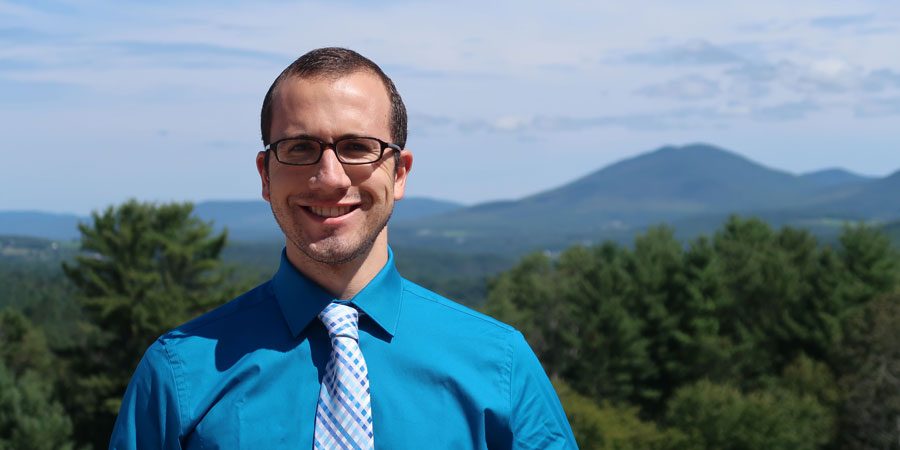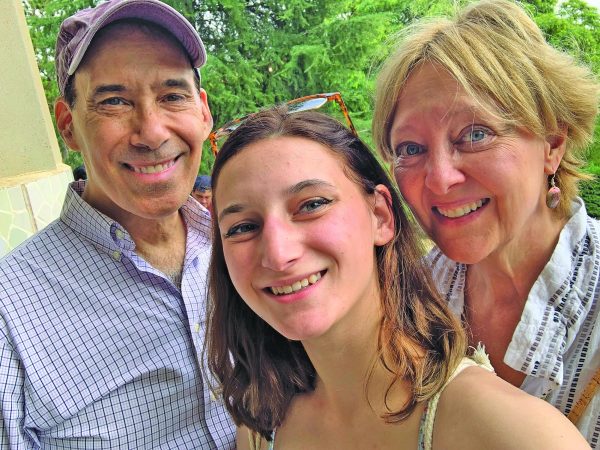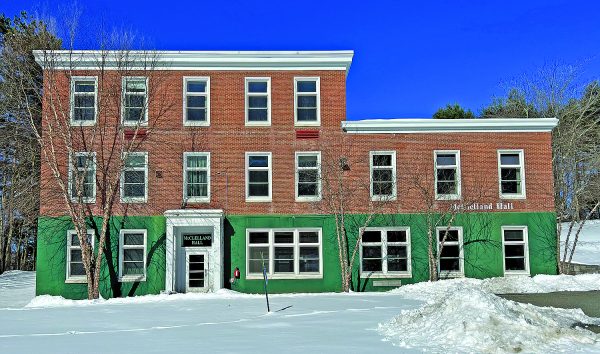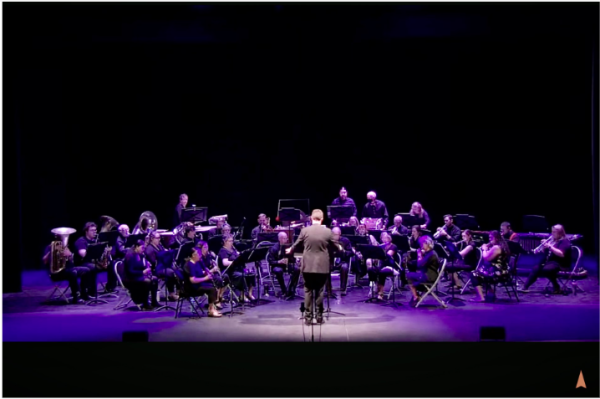LSC welcomes new atmospheric science professor
Dr. Aaron Preston
Editor’s Note: Emma is an Electronic Journalism Arts student at Lyndon State College. This article is part of a collaboration with Basement Medicine to better represent our unified community.
Over the summer, Dr. Aaron Preston joined Lyndon State’s Atmospheric Science Department. He comes to Lyndon after attending Florida State University, where he received his Ph.D. in Meteorology.
Preston says he developed his interest in meteorology as a child. One main reason for his interest is the movie “Twister.”
“I remember being in awe of the movie and being really influenced by the course of nature,” Preston says. “I think that really captivated me.”
Being from Michigan also had an impact on Preston’s interest in weather. “I remember staying up late at night trying to forecast through the Weather Channel if we were going to have a snow day the next day or not,” Preston says, adding that forecasting the weather for school really reinforced his interest in the subject.
While earning his master’s degree and Ph.D. from Florida State University, he grew interested in wanting to teach others and share his love for meteorology with people. He took part in the nationally recognized program “Preparing Future Faculty.” This program allows Ph.D. students to talk to other professors around the United States who are in their desired major.
“You get to know what the proportion of research to teaching is, what their daily life is like, what kind of courses do they teach,” Preston says.
While being a part of the program, Preston had to attend courses and seminars on research ethics, writing syllabi and putting together class activities, with the program. He was able to start teaching courses at Florida State while still being a graduate student. He says the program he took part in truly helped him prepare for teaching classes and get involved with his students.
Preston is teaching several courses such as Mesoscale Meteorology and Survey of Meteorology. He says the Mesoscale class goes in depth, and focuses on severe weather aspects and not just largescale weather wind flow in the United States.
“It’s looking at individual thunderstorms, what is going on here, understanding what effects its intensity,” he says. He’s looking forward to, and is excited to, continue teaching this class.
As for the Survey class, he says he’s excited because the students are all freshman and sophomores. “It gets them when there new to the field,” he says. “So to be able to have an impact on exciting them and getting them interested them in weather.” He says to be able to lay down the foundation for them is very exciting.
He also has hopes to bring a tropical hurricane class to ATM students this year: “It’d be where we discuss what goes into what strengthens a hurricane, what parameters are involved, when they start to weaken, and looking at their structure.” He says for a class like this the students would be able to work on historical cases like Hurricanes Irma and Harvey. He believes it would be very beneficial for the students even though we are far away from the coast.
Preston says his number one goal when teaching is for his students to get excited about learning more and becoming more interested in meteorological topics. “I want them to understand the material and have a really good foundation,” he says. “But I really want them to be excited about what their learning.”
He believes that when students are excited to learn they start wanting learning material on their own outside of class. He hopes his courses helps reinforce why students are studying ATM and why they want to pursue meteorology as a career. He hopes to learn what his students want to do with their degree so he can help them with the next steps.
Students are already warming up to Preston with the start of the semester. Jake Fortin, a junior in the ATM department says, “He wants to figure out how to teach to our learning style. He’s taking our feedback and really taking into consideration what we’re saying.”
Fortin went on to say that Preston and the student instructor in his class communicate well together on what the students’ needs are, and that is something Fortin among other students have appreciation for. Fortin says that since Preston is a recent graduate, he understands where his students are coming from.
“He talks about how you hear the words ‘Physical Metrology’ as a class and you panic because you think these tests are going to be really hard,” Fortin says.
Fortin appreciates that Preston has been in the student’s shoes and that he makes everything really straight forward to his students. At the beginning of every class, Preston talks about the hurricanes and weather issues that are going on in the real world at the time and shows his students how to apply the concepts learned in class to these situations, something Fortin says is beneficial.
“He really tries to make us remember why we’re in this major — that we’re not here to just learn the mechanics of it, but to apply it to what’s going on in the real world,” says Fortin.








